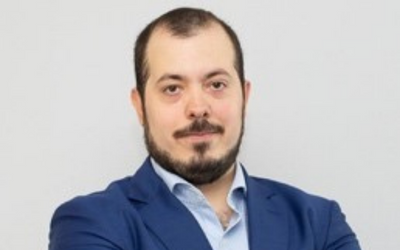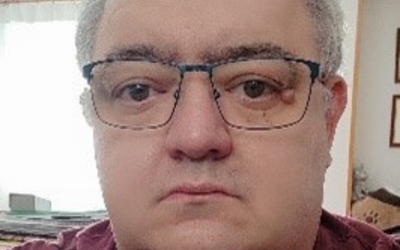You are here
- Home
- External Events and Publications
- Biennial APS Conference
- APS Conference 2023
- Conference programme
- Towards Accessibility in Digital Electronics for the Visually Impaired. A b-learning experience.
Towards Accessibility in Digital Electronics for the Visually Impaired. A b-learning experience.
Jorge Pérez-Martín, Alejandro Rodriguez-Ascaso and Félix De la Paz, Computer Science Faculty, Universidad Nacional de Educación a Distancia (UNED), Spain
Email: arascaso@dia.uned.es
Session recording
Presentation
Abstract
Esther is a user of a screen reader and braille. She is a student of Fundamentals of Digital Systems at UNED, the Spanish National Distance Learning University. Her study is hindered by the characteristics of the materials, the learning activities and the assessment processes, including mathematical expressions (Archambault, 2007), complex images, an inaccessible circuit simulator, and pre-recorded and live videos (Rodriguez-Ascaso, 2018). To face this challenge, the module’s lecturers are being assisted by the UNED disabled student unit (UNIDIS) and the Spanish National Organisation for the Blind (ONCE).
The contents of the virtual course are being adapted following the accessibility recommendations (WCAG 2.1) (W3C, 2018). Furthermore, Esther has a version of the course textbook in ASCII Braille by ONCE. However, the production of tactile diagrams of the massive number of images (circuits, state diagrams, etc.) is taking time. For her practice, we choose representative assignments and produce them in accessible MSWord files with math equations (MSUDenver, 2021). When there are any images involved, we re-design them to omit non-essential information, so that tactile perception is optimized. The images are then reviewed by ONCE experts, who produce the tactile diagrams and send them through post mail to the student. Then, she works on the assignment individually, explores the tactile materials, and annotates her intermediate and final results in a digital document through tables and mathematical expressions. When needed, online meetings are scheduled with the student to clarify issues or to describe orally the functions of the circuit simulator. Regarding the final exam, we have worked on a new type of accommodation that is new at the university, consisting of an exam in accessible MS Word format accompanied by a set of tactile materials.
However, many open challenges remain, including: pending contents of the textbook; accessibility of the pre-recorded and live videos; and accessibility of the simulator (Pender, 2022).
Jorge Pérez Martín
Assistant Professor in the Department of Artificial Intelligence: Universidad Nacional de Educación a Distancia (UNED) (Spanish National Distance Learning University)
Jorge Pérez Martín was born in Madrid in 1986. He graduated in IT Business Management from the Complutense University of Madrid in 2014. One year later he completed his Master's Degree in Advanced Artificial Intelligence from the Universidad Nacional de Educación a Distancia (UNED). From 2015 to 2019 he completed his Ph.D studies in Intelligent Systems thanks to a predoctoral grant (FPU14/02577) from the Spanish Ministry of Education. Since October 2020 he has been an Assistant Professor in the Department of Artificial Intelligence at the UNED.
He is a member of the ``Research Center for Intelligent Decision-Support Systems'' and ``miniXmodular'', a teaching innovation group. He has participated in several teaching innovation projects related to accessible interactive materials. Since 2016 he has participated in the editing and quality analysis of MOOC courses of the ONCE Foundation Channel at UNED through various transfer contracts.
Alejandro Rodriguez Arascaso
Lecturer and researcher (Artificial Intelligence), Universidad Nacional de Educación a Distancia (UNED) (Spanish National Distance Learning University)
Alejandro Rodriguez-Ascaso has a PhD. in Telecommunications Engineering from the Universidad Politécnica de Madrid (UPM). He is a lecturer and researcher at the Department of Artificial Intelligence at the Universidad Nacional de Educación a Distancia (UNED, Spanish National Distance Learning University). His main teaching and research interests are in the area of accessible human-computer interaction, adaptive and open learning resources, telecare and ICT mediated support for personal autonomy. He is the principal investigator at ONCE Foundation Channel at UNED. Furthermore, he is active in national and international standardization activities in the field of digital accessibility and user experience at UNE, ETSI and ISO.
Félix de la Paz
Associate Professor in the Department of Artificial Intelligence, Universidad Nacional de Educación a Distancia (UNED) (Spanish National Distance Learning University)
Félix de la Paz received the B.Sc. and M.Sc. degrees in physics from the Universidad Complutense de Madrid, Spain, in 1995, and the Ph.D. degree in physics from the Universidad Nacional de Educacion a Distancia, Madrid, Spain, in 2003. He is currently an Associate Professor with the Artificial Intelligence Department, Universidad Nacional de Educacion a Distancia. His main research interests include navigation and representation tasks in mobile robots, human–robot interaction, and social robotics.


